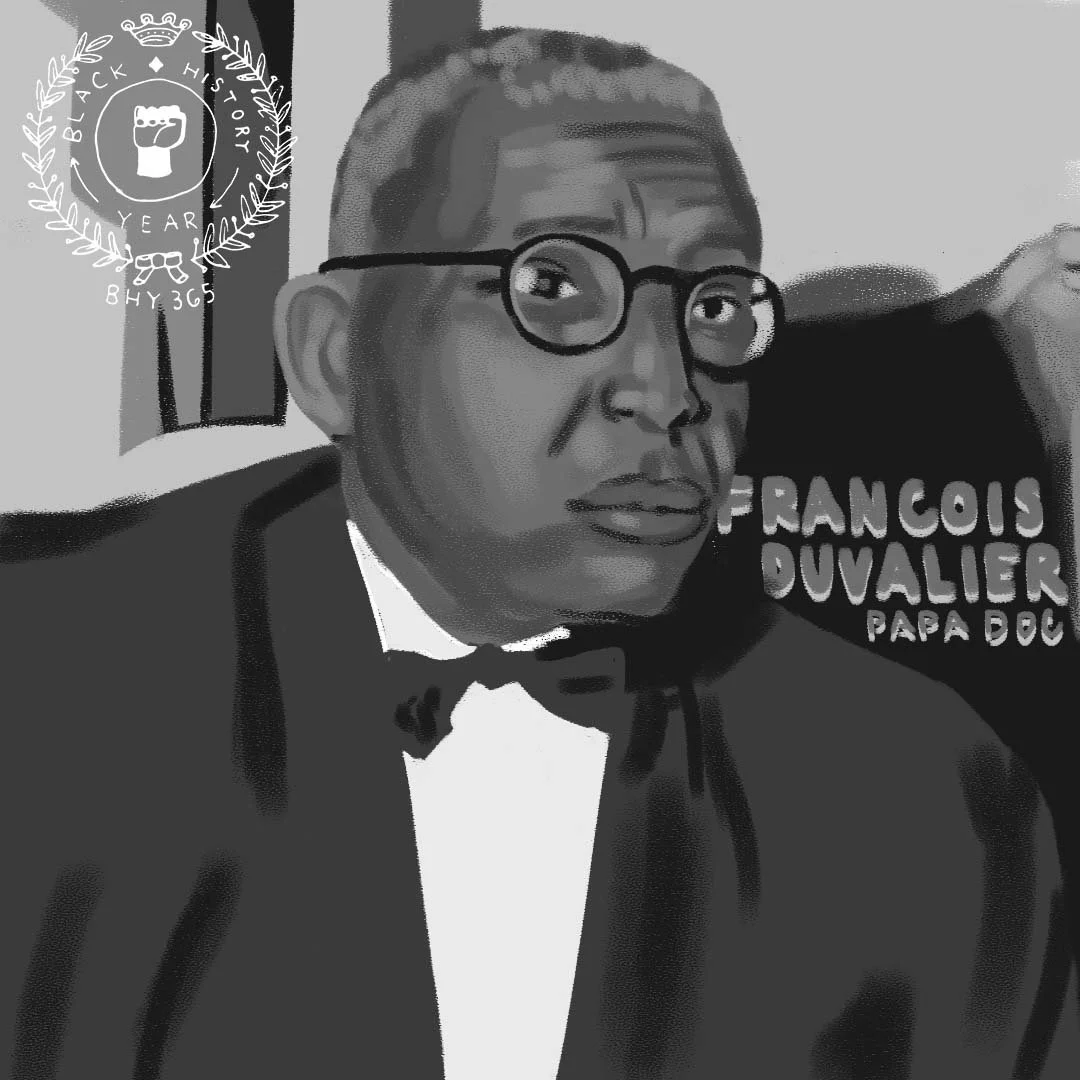Black History 365 | # 151 Sonya Massey
Black History 365 | # 154 John Henrik Clarke
John Henrik Clarke is best known as the scholar who made Africana studies prominent in academia in the late 1960s. Arriving in Harlem at the age of 18 in 1933, Clarke developed as a writer and lecturer during the Great Depression years, becoming a part of the movement we now understand as the Harlem Renaissance. Clarke was co-founder of the Harlem Quarterly (1949–51), book review editor of the Negro History Bulletin (1948–52), associate editor of the magazine, Freedomways, and a feature writer for the Black-owned Pittsburgh Courier. Clarke taught at the New School for Social Research from 1956 to 1958. Traveling in West Africa in 1958–59, he met Kwame Nkrumah, whom he had mentored as a student in the US, and was offered a job working as a journalist for the Ghana Evening News. He also lectured at the University of Ghana and elsewhere in Africa, including in Nigeria at the University of Ibadan. His greatest period of influence resides in the 1960’s where he was a prominent intellectual during the Black Power Movement, advocating studies on the African-American experience and the place of Africans in world history. He challenged the views of academic historians and helped shift the way African history was studied and taught.
Black History 365 | # 153 Sistah Souljah
Sister Souljah (born Lisa Williamson) is an emcee, activist, and successful author who is best known for her books, most notably her memoir, No Disrespect (1994) and The Coldest Winter Ever (1999). Prior to her success as an author, she was a member of the legendary Hip Hop group, Public Enemy. In 1992, she released 360 Degrees of Power, her first and only album to date. Sister Souljah’s music addresses various issues facing the Black community such as racism, sexism, and abuse. Seeing her mind at work on Larry King, with Cornel West, to now where she’s discussing her pursuits in non-fiction is awe inspiring. She was also in Public Enemy. BIG UP!
Black History 365 | # 152 Francois Duvalier
François Duvalier (born April 14, 1907, Port-au-Prince, Haiti—died April 21, 1971, Port-au-Prince) was the president of Haiti whose 14-year regime was of unprecedented duration in that country. Haiti had been deemed the poorest nation in the Western Hemisphere. President François Duvalier was popularly elected in 1957, a break in the usual cycle of Presidential succession by military coup, but soon after his election Duvalier proved himself another Haitian dictator according to the US Government. Haiti’s economy was virtually bankrupt. Graft and administrative ineptitude discouraged international lenders from providing Haiti with additional loans. Because Haiti’s economy was dependent on coffee, a wild crop harvested by peasants, its revenues fluctuated wildy. He was succeeded by his son, Jean-Claude Duvalier from 1971-1987.





